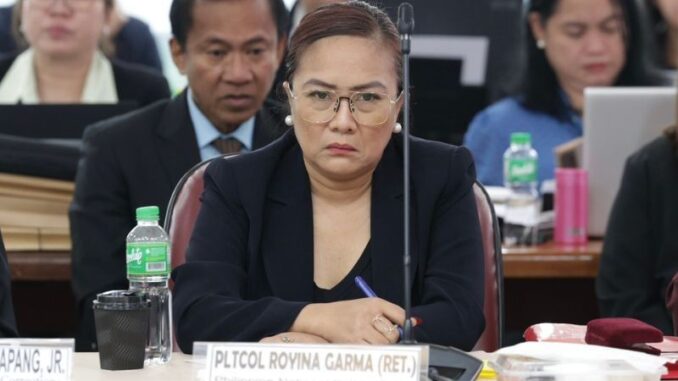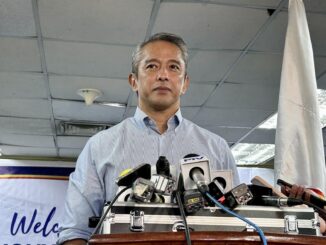
MANILA, Philippines — Former Philippine Charity Sweepstakes Office chief Royina Garma and her daughter have been detained in San Francisco as the Philippine government pursues its investigation into the controversial drug war under the watch of former president Rodrigo Duterte.
The Department of Justice confirmed Tuesday that Garma and her daughter, Angelica Garma Vilela, were taken into custody on November 7.
Justice Secretary Jesus Crispin Remulla has instructed immigration authorities to arrange for Garma’s return to the Philippines.
“The details of the arrest and detention may be sought from the PNP and DILG as they have the complete records,” Justice Assistant Secretary Mico Clavano said in a statement sent to reporters.
Philstar.com has asked Clavano for the basis of Garma’s arrest in the U.S., however, the Justice spokesperson referred to the Philippine National Police and the Department of Interior and Local Government
Garma recently emerged as a key witness in a House of Representatives inquiry into drug war operations during the Duterte administration. In a testimony last month, she detailed the “Davao Model,” describing a reward system that incentivized police officers. They can receive either a commendation, funding for “planned operations,” or reimbursements for operational costs.
At a press conference on Tuesday, Rep. Robert Barbers (Surigao del Norte) expressed surprised at the development, noting her recent cooperation with authorities.
“She was there during our last hearing, accompanied by former Colonel Leonardo. [She] was also also there, represented by lawyers. So, we have no idea if she had left the country,” Barbers said in a mix of English and Filipino.
Ongoing investigations. Garma faces allegations of involvement in multiple deaths, including the 2020 killing of PCSO board secretary Wesley Barayuga and the 2016 deaths of three alleged Chinese drug lords.
Zooming out. The Philippine government officially acknowledges approximately 6,000 deaths in its drug war operations under the previous administration.
International human rights organizations, however, estimate the toll could be as high as 30,000, primarily affecting small-scale drug users and dealers.





Be the first to comment